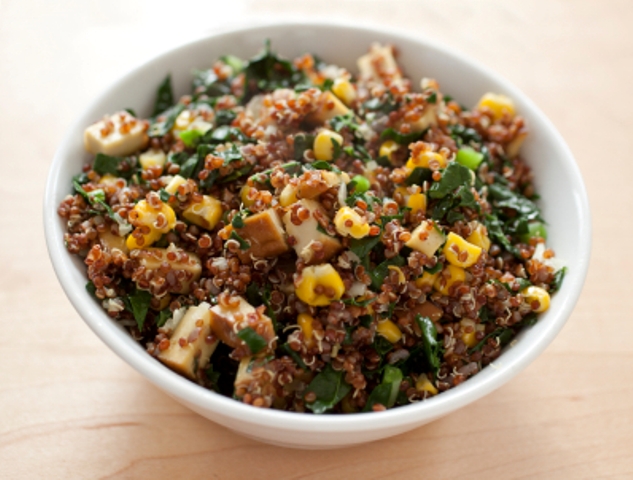5 Facebook Mistakes Every Dieter Makes
At first glance, using Facebook to mark your weight loss journey seems like a good idea. It will make you be accountable, right? Your fit friends can be your inspiration, right? Maybe not!
A recent study from the University of Michigan found that people who shared their weekly exercise goals on Facebook didn’t exercise any more than the people who kept their plans to themselves. Another recent study found that women who compare their body to those of their Facebook friends are more likely to engage in risky dieting behaviour.
In addition, we tend to cheat on our diets when we are feeling sad. Kit Yarrow, a consumer researcher, recently wrote that as Facebook usage increases, feelings of sadness and unworthiness also increase. Of course, this doesn’t have to be the case. Try to focus on positive messages from friends and family members, and, just like in real life, drown out the negativity with reminders to yourself that you are strong, beautiful, and doing the best you can.
Mistake No. 1: You declare your goals for all the world (or, at least your Facebook friends) to see.
There is nothing wrong with having big goals. But sharing these goals on Facebook as a way to stay committed may backfire on you. Adrienne Raimo, RD, an integrative and functional dietitian in Columbus, Ohio, says, “It can be very tempting to post unrealistic goals—say, that you’re going to lose 30 pounds before your birthday or only eat clean from here out—which sets you up to feel bad about yourself if you don’t reach the goal. Think about how ashamed you’re going to feel when you have that beer or ice cream this weekend, and how much more likely you’ll be to throw in the towel and quit because you failed in front of everyone.”
The Fix: Post your mini-successes instead. Go ahead, humble brag a little. Instead of sharing what you hope to accomplish, share what you HAVE accomplished. “That’s more likely to make you feel good about your efforts and keep you on track as a result,” says, Raimo.
Mistake No. 2: You post updates while you’re at the gym.
Certified personal trainer and nutrition specialist, Jamie Logie, hates it when he sees people checking in before a workout or updating in the middle of one. “It’s often a tip-off that the person is more interested in creating a persona than putting in the work that’ll help them make good progress,” he says. Besides, new research from Kent University has found that when people use their smart phones during exercise, there is a decrease in exercise intensity meaning fewer calories burned!
The fix: Keep your phone stashed in your gym bag or locker. Why even tempt yourself?
Mistake No. 3: You’re fixating on food photos.
Think about those pictures your friend posted of those fresh baked cookies. Odds are you not only ‘liked’ the photo, you probably found yourself elbow deep in a bag of cookies. “Constantly seeing images of food over-stimulates your visual senses and can slowly erode the idea that food is first and foremost nourishment,” says Brandon Mentore, a strength and conditioning coach and sports nutritionist in Philadelphia. “Worse, our exposure to all of these beautiful-looking meals can make the food we actually eat seem boring because it’s not as stylized as it is in a photograph.”
The fix: Try to estimate the calorie count of those succulent photos—and remind yourself these foods don’t fit your eating plan. And stop following all those food bloggers and bake happy friends. “One of the functions of any diet is to tune into your body and what it needs and the signals it’s sending you,” says Mentore. This also means tuning out triggers!
Want to know how to eat properly? Want answers about what exactly you should be buying at the grocery store? You may be shocked by how simple it is to change your diet. For more information check out the BodyRock Meal Plan!
Mistake No. 4: You measure up your own progress against others’.
It is impossible to accurately compare yourself to others and research has shown that attempting to do so will only lead to you feeling like a failure. “If you have been exercising and eating well for a week or two and aren’t seeing results, stumbling across a friend’s bikini pics can make you say, ‘Why bother?’ ” says Raimo. “You can feel like you’ll never look that good—and that you’re tired of life without Snickers bars.”
The fix: Try to focus solely on you. Difficult? Yes. Impossible? No. “Remind yourself often that you’re losing weight to feel good about you. You’re doing this for your health. That’ll help keep you from making unhelpful comparisons,” says Shane Allen, a certified weight loss specialist and personal trainer in Dallas.
Mistake No. 5: Friends are scoring awesome results on the latest weight-loss fad—and you decide to jump on.
The way things get shared and go viral online can be dangerous. “There are way too many variations of what people are eating and how they’re eating it. So many people are preaching, selling, coaching, posting—it’s distracting to the point where most of us feel totally overwhelmed,” says Mentore.
The fix: Try to tune out the “noise” and hone in on what supports your path. “When you feel yourself questioning or doubting your own program and routine because of social media, step away from the monitor and remind yourself of why you chose your plan—and what’s working,” says Mentore. This may mean ditching your social media for a little while. “It’ll become clear—pretty quickly—whether Facebook and your other social platforms are helping you reach your diet goals or not,” says Raimo.
I know I’m guilty of a few of these mistakes, how about you? How do you tune out the noise and stay focused?
Source: Prevention
-
Fitness Workouts for Stomach
Losing belly fat could not only make you look sexy but will also make
-
Know The Advantages Of Weight Loss Programs
So let us consider the impact of honeys
-
Say Goodbye To Your Fat Or Your Money Back
Losing that unsightly layer of fat or simply just dropping those last
-
Triggering Your Fat Burning Zone
Its the New Year, and aside from making more money, the biggest con
-
Attitude Your Weight Loss Secret
Its a contest of purposeless suffering....to me of course, its all abo
-
Boost Up Your Metabolism
Many people think about losing weight. Ordinarily, people who are ove
- DON'T MISS
- Losing Weight Begins With Your Mindset
- Tips For Losing Weight And Feeling Good
- Homemade Fat Loss Supplements by Singapore Fat Loss Expert
- Vegetables that Help in Weight Loss
- Obesity Paradox: Excess Body Fat Helps in Heart Failure Recovery
- Personal Space Life After LapBand Surgery
- Benefits of a Mediterranean Diet
- The Secret To Staying Motivated For New Year Weight Loss
- How About That Atkins Diet
- You have to be Mindful along with your Diet program if you include an Endomorph Entire body




